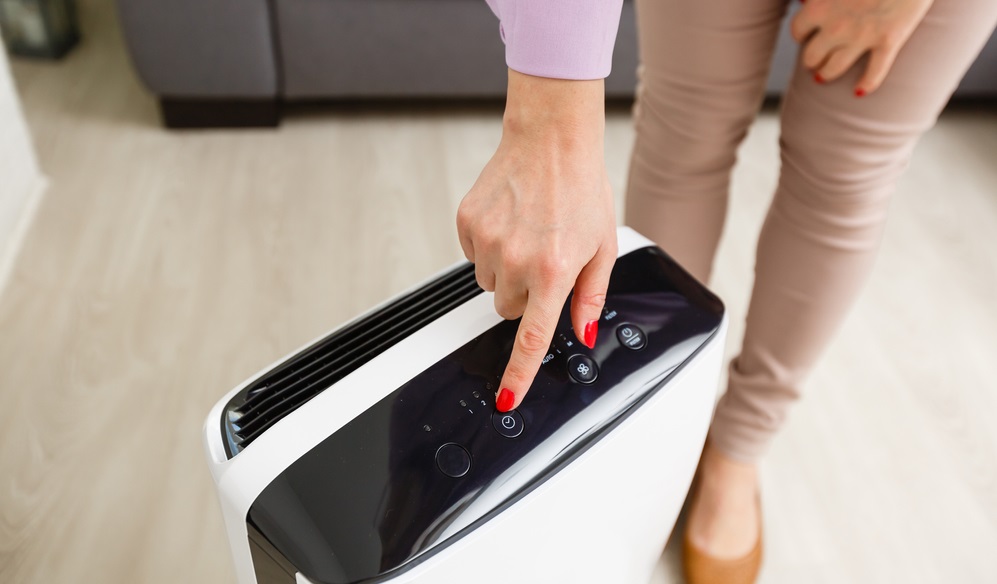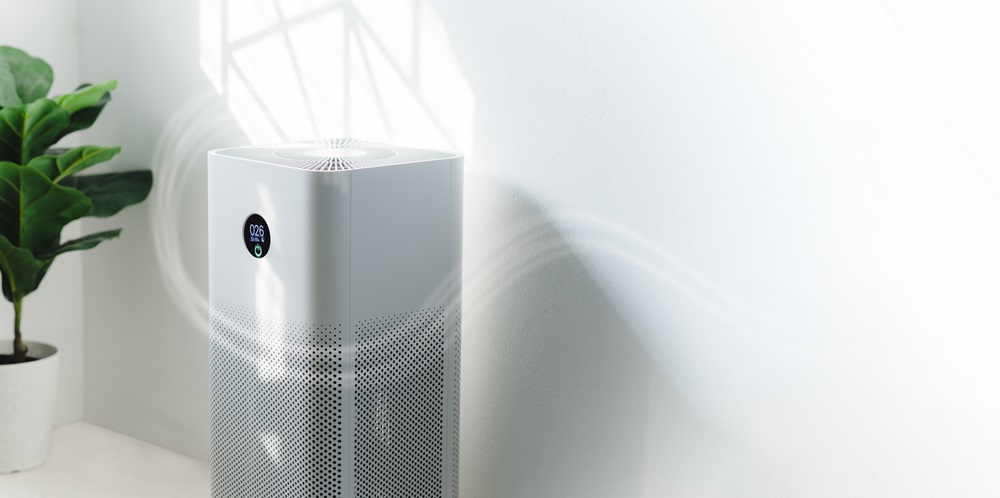
An air purifier can be an incredibly handy tool at clearing unwanted smells out of your home, leaving you with fresh, clean air in virtually every room in your house. But if you only run your air purifiers for a few hours every day, it can be hard to determine just how clean your air is – but it can be just as hard to figure out how often to run air purifier.
After all, if you’re using an air purifier, it’s safe to assume you want your home’s air to be as fresh and free of toxins as possible.
This begs the question: How long should I leave an air purifier on?
In today’s guide, we’re going to answer that question once and for all.
What Do Air Purifiers Do?
Air purifiers sanitize the indoor air in a space by removing pollutants, allergens, and toxins. They refresh the air in your home to keep you healthy and prevent the air from getting stale and uncomfortable.
Air purifiers consist of a small fan that sucks in air and usually a filter made of either paper or mesh material. As the fan pulls in the indoor air, it passes through the filter and stops pollutants and particles from recirculating into the air. It releases the filtered air back into your space and continues pulling more air.
For air humidifiers to work well, their filters need to be regularly changed or cleaned depending on what kind of filter it is.
What Do Air Purifiers Remove From the Air?
Air purifiers work to remove air pollution to better the health and comfort of your home. Some of the substances include dust, pollen, dander and smoke that enters your space.
These substances make your home uncomfortable and cause stuffy noses, sneezing, dry throat or cough. Air pollution affects people with respiratory conditions like asthma. People with such conditions greatly benefit from having these hazards removed from their breathing indoor air.
Short Answer
The best way to maximize your air purifier is to run it 24 hours a day, so your air is constantly being recycled and purified.
By running the air purifier at all times, you ensure your air is as clean as possible, and no new contaminants are poisoning your air.
Long Answer
Many factors contribute bacteria to your space and contaminate the purified air. If you only want to run your air purifier for a few hours, odds are your air is only pure and filtered for those few hours.
Keeping your air purifier on all the time is the best way to keep your air healthy and clean, but if you can’t, or don’t want to, use that much electricity, it should be on when you are home. When you leave for work or go out, that is the ideal time to turn it off.
Of course, it makes sense for people to buy air purifiers to improve the quality of the air they breathe. So if you leave your air purifier on while you are out and off when you come home, you aren’t reaping the benefits of it.
Certain seasons may require you to run the air purifier more often. If you suffer from allergies, the beginning of the spring and summer comes with lots of pollen in the air that may irritate you. You may want to run the purifier throughout the day during these high-allergen periods and use it less during other times of the year.
If you live in an area affected by wildfire smoke or other pollutants that make your living space uncomfortable, you should run your air purifier all the time to reduce these indoor air particles.
What is a HEPA filter?
HEPA stands for High-Efficiency Particulate Air, and these filters are designed to capture particles of varying sizes. The filter is made of various layers of netting that range in density.
HEPA filters work to clean the air and trap different-sized particles by using three different methods. Particles from pollen to dust to dander don’t stand a chance against HEPA filters.
1. Large particles
The bigger particles in the indoor air on stopped by impaction, which just means they become trapped when they collide with the filter’s fibers.
2. Medium particles
Mid-sized particles are trapped through interception, which is when the particle touches a fiber and becomes stuck on it.
3. Tiny particles
The smallest particles the HEPA filters trap are minuscule. These particles are trapped through diffusion, which means these tiny particles bounce around inside the filter until they eventually get caught on a fiber.
HEPA filters can capture these varying particles because of the netting design with many layers that prevent even the smallest particles from escaping into the air.
Benefits of Filtered Air

Having an air purifier in your home comes with loads of benefits you may not be thinking of. Understanding everything your air purifier is improving can help people understand why they should be left on at all times.
Most, if not all, of these benefits, apply to every household and provide you with more reasons to leave the air purifier running all day long
Increased Life Expectancy
Believe it or not, breathing filtered air in your home can increase your life expectancy by years. Inhaling unhealthy and harmful particles can lead to cardiac, respiratory, and even neurological problems.
Better Sleep
Air purifiers are known for helping people that struggle to fall and stay asleep. There are several reasons air purifiers improve sleep, but the number one is by removing stale and heavy substances from the air that makes your breathing uncomfortable while you sleep. As an added bonus, the white noise can also lull you to sleep.
Reduces Risk of Disease
The studies on this are not the most consistent, but many experts conclude that air purifiers will reduce the risk of airborne disease by filtering the bacteria. There has even been research into the effectiveness of air purifiers to protect against COVID-19.
Reduces Odors
Air purifiers are great at eliminating bothersome odors that can’t be stopped at the source. Many people get air purifiers for this reason but wind up benefitting from the healthy air as well.
Reduces Indoor Chemicals
Certain substances, like carbon monoxide, are common in households. Air purifiers work to eliminate all harmful chemicals from your indoor air so you can breathe well.
Conclusion
Air purifiers are a wonderful appliance to recycle and refresh the air in your home, so you don’t have to inhale stale air or unpleasant odors. If you feel like you breathe better when the purifier is on, this is not a coincidence.
To capitalize on the many benefits air purifiers offer, your health and your home should leave them on as much as you can.
Frequently Asked Questions
Are there times I shouldn’t run my air purifier?
If you have a dirty filter, there isn’t any point in running the purifier, so you can leave it off in this situation. A dirty filter will not be effective in removing air pollution and toxins, so it just makes sense to turn it off.
Is it dangerous to leave it on all the time?
No, air purifiers are designed to run constantly, so they should never overheat or become overwhelmed from being on.
Some situations can be dangerous, such as if the cord to the purifier is damaged, this is an electrical hazard. But as long as the purifier is in good condition, there is no danger in leaving it running throughout the day.
Do I have to use HEPA filters?
No, you can use other filters available for air purifiers. But HEPA filters are the best for residential air purifiers because they target all sizes of particles. Some filters, like ozone filters, are dangerous to have indoors and should not be used at home.
